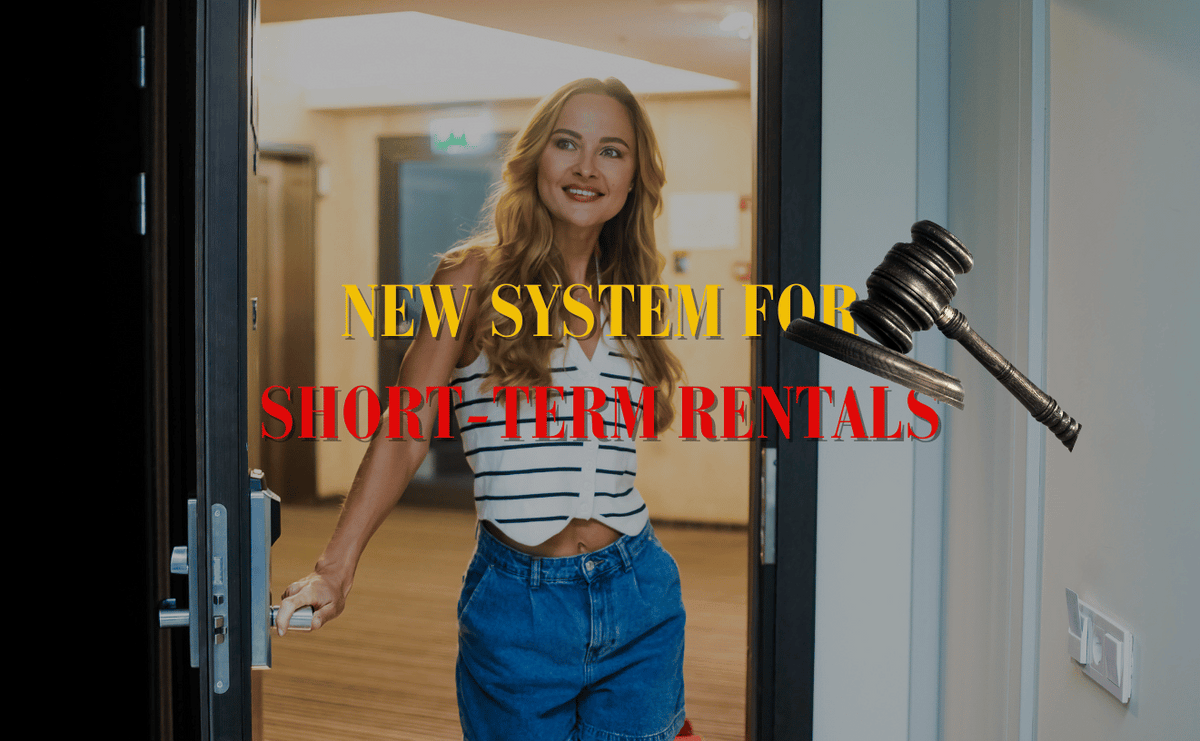
Spain introduces new system for short-term rentals with Royal Decree
|
|
Time to read: 3 min
|
|
Time to read: 3 min
The Spanish government has introduced a groundbreaking Royal Decree aimed at regulating short-term rentals, making Spain the first country in the European Union to implement such a comprehensive system.
The decree, presented to the Council of Ministers by Minister Isabel Rodríguez, establishes a "digital single window for rentals" to monitor short-term rentals through a mandatory registration and identification system.
The aim is to combat illegal tourist accommodation, protect those in need of seasonal housing and ensure transparency in the short-term rental market.
All properties used for short-term rentals, including tourist apartments, seasonal rentals, room rentals, and even boat accommodations, must now register through the Digital Single Window. Each property will be assigned a unique identification number, which must be displayed on digital platforms such as Airbnb and Booking.com.
The identification number will be valid for 12 months. Upon renewal, hosts will be required to provide a list of all rental agreements signed during the year. For seasonal rentals, hosts must also justify why each rental agreement is classified as non-permanent housing.
In an effort to crack down on illegal rentals, the system will require landlords to provide a copy of their operating license from the local government. Online platforms will be responsible for ensuring that each listing has a valid registration number.
Properties without a valid registration number, or those operating in the wrong category, will be subject to penalties. In serious cases, listings could be removed from digital platforms or be subject to significant fines.
The royal decree is part of Spain's broader housing reform, which addresses the increasing difficulty of accessing affordable housing.
Recent initiatives include the suspension of evictions for vulnerable groups until 2028, the construction of 24,000 affordable rental homes, and financial support for young families to access mortgages.
The Royal Decree is also part of the application of the European Regulation 2024/1028 on the collection and exchange of data for short-term accommodation rental services.
The Spanish government's approach reflects a strong desire to regulate the housing market, balance tourism demand and protect local residents from the effects of illegal rentals.
For Airbnb hosts and other short-term rental property owners, the Royal Decree introduces several important changes that will affect the way they operate:
🔒 Mandatory Registration Number:
All Airbnb listings in Spain will now require a registration number, obtained from the College of Registrars. This must be visible on the listing, and Airbnb is required to ensure compliance. Without this number, properties cannot be legally marketed.
📆12-month renewal process:
Airbnb hosts must renew their registration annually. They must provide a list of signed contracts and justify why certain leases are considered short-term, especially for seasonal rentals. The goal is to prevent fraud and ensure rentals are properly classified.
🛑Tighter oversight and penalties:
Airbnb hosts will face stricter monitoring. If a host fails to comply, platforms like Airbnb will be forced to remove the listing. Hosts who violate the law could also face fines and other penalties.
🏠Operating License Requirement:
Airbnb hosts will be required to provide a copy of their property's operating license, issued by the local government. This step ensures that all short-term rentals comply with local regulations, and prevents unlicensed properties from entering the market.
The new regulations aim to protect renters by ensuring that short-term rentals are safe, legal, and properly registered.
The system will also help curb illegal tourist rentals, which often drive up housing costs for residents, especially in high-demand cities like Madrid, Barcelona, and Málaga.
By requiring all properties to register and renew annually, Spain is setting a new standard for transparency and accountability in the short-term rental market.
This has the potential to reduce illegal rentals, increase access to affordable housing, and level the playing field for both property owners and renters.
Spain's royal decree is a significant step toward greater regulation of the short-term rental market, setting a precedent within the European Union.
For Airbnb hosts, compliance is no longer optional - property registration, license verification and regular renewals are now mandatory to avoid penalties.
These measures are part of the government's broader housing strategy, which aims to ensure transparency, protect seasonal renters, and prioritize access to affordable housing.
As Spain continues to implement this system, it will likely serve as a model for other EU countries, balancing the needs of tourism with access to housing for local residents.
